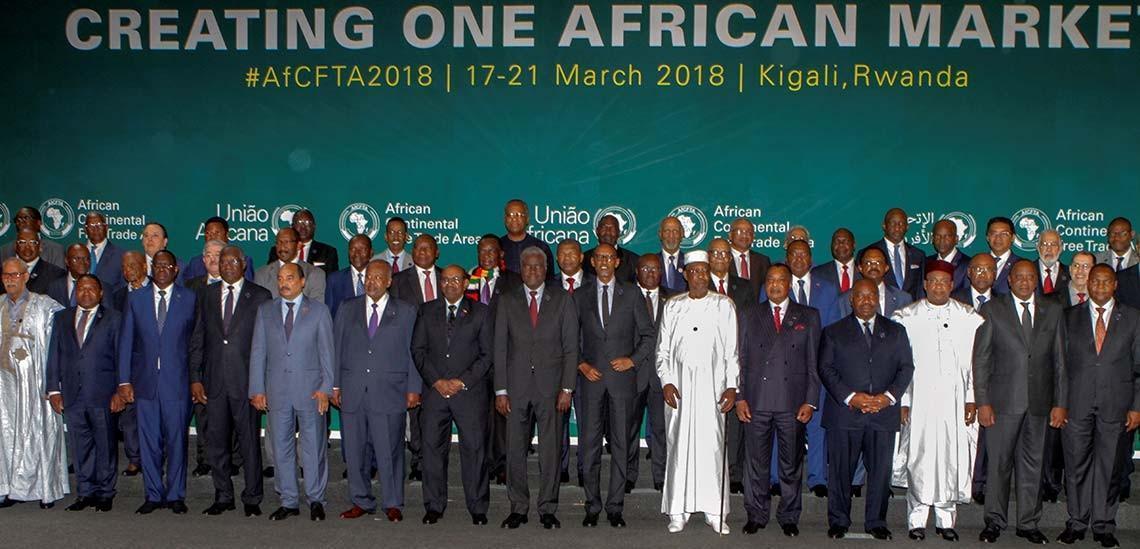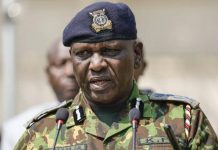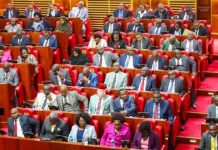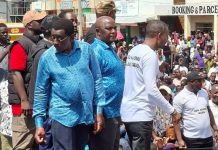writes Adamu Waziri Babagana
Africa-Press – Kenya. Growing tensions between African countries and global geopolitical divisions are hurting cross-border trade and economic ties within the continent. This is making it harder to create a single African market.
Africa is making progress in its economic integration that will facilitate the movement of goods, services and people across the continent. The African Continental Free Trade Area (AfCFTA) ratified by 54 countries, will create a single African market and remove the existing international trade barriers that hinder economic exchange and shared prosperity. However, several obstacles stand in the way of the agreement’s full implementation. Infrastructure deficits, weak institutions, political instability, and the difficulty of transacting in 42 different currencies have all held up progress.
There are also, unfortunately, growing political issues that are making integration more difficult. Growing disputes among neighbouring countries are affecting cross-border trade and diplomatic relations. Accelerating geopolitical fragmentation is leading some African countries to strengthen their ties with Russia and China, and abandon long-standing relationships with the US and Europe, while others are doubling down.
Internal disputes
Some of the feuds between African countries are rooted in historical territorial disputes over the use of land and water resources. Others are linked to political factors associated with separatist movements or armed conflict. Climate change will increase the pressure on natural resources, and leaders and publics remember which side other countries took long after a conflict has concluded, making such disputes intractable.
In the Horn of Africa, diplomatic crises have erupted between Kenya and Sudan and between Somalia and Ethiopia, with ambassadors being recalled in both cases. The Kenya-Sudan crisis was triggered by Kenyan President William Ruto’s warm reception of Sudanese paramilitary commander Mohamed Hamdan Dagalo (Hemedti). Hemedti is a rival in the civil war against General Abdel Fatah al-Burhan, the head of the Sudanese government and armed forces. Al-Burhan interpreted Kenya’s actions as favouring Hemedti in the conflict and responded by recalling the Sudanese ambassador to Kenya and calling for Kenya’s exclusion from mediation efforts. In the other dispute, landlocked Ethiopia sought to secure access to the sea through a deal with Somaliland, a breakaway region of Somalia. The move prompted Mogadishu to recall its ambassador from Addis Ababa.
Meanwhile, the construction of the Grand Ethiopian Renaissance Dam (GERD) has created geopolitical tension between Ethiopia, Egypt, and Sudan, bringing the countries to the brink of military conflict. Ethiopia is building the dam to double its electricity supply for domestic use and possible export to other countries. Egypt, however, is concerned about the dam’s impact on the livelihoods of more than 90 per cent of its population because of the subsequent restriction of water supply. Last year, the fourth round of negotiations between the two countries ended without an agreement. Analysts suggest that this dispute could potentially provide an avenue for a proxy war, as Egypt has a military base in Somalia, while Ethiopia has signed a memorandum of understanding with Somaliland for port and naval access in the Gulf of Aden as mentioned above.
In central Africa, relations between the Democratic Republic of Congo (DRC) and Rwanda continue to deteriorate. Hostilities between the two neighbours date back to the 1994 Rwandan genocide. Many of the perpetrators fled to the DRC, and Rwanda believes that the DRC continues to provide them refuge rather than return them to face justice. Recent tensions were sparked by renewed fighting between DRC forces and the March 23 (M23) rebel group. Rwandan President Paul Kagame and his DRC counterpart Felix Tshisekedi have traded accusations. In a recent interview, President Tshisekedi made several weighty accusations and disparaging remarks against Kagame, dimming the prospects of resolving the ongoing conflict. The DRC president accused Rwanda of using force to extract minerals from his country and of sabotaging peace efforts, calling Kagame an aggressor and a criminal. He once compared Kagame to Adolf Hitler.
In the north, Morocco and Algeria have a long history of hostility toward each other that is escalating rather than abating. The 1,400-kilometer land border between the two countries has been closed since 1994. In 2021, Algeria broke off diplomatic relations with Morocco over accusations of hostility and support for the Berber separatist group. Tensions intensified in March 2024 with the opening of an office in Algiers for the Moroccan Republic of the Rif, a separatist organisation allegedly funded by Algeria.
In West Africa, diplomatic skirmishes among member states of the regional common market, ECOWAS, have intensified, particularly in the wake of military coups in Mali, Burkina Faso, Guinea, and Niger. The overthrow of democratic governments in these countries was condemned by other member states, leading to the imposition of economic sanctions against the junta-led nations and threats of military intervention. Resisting pressure to return to democratic rule, Mali, Burkina Faso, and Niger announced their withdrawal from ECOWAS to form a new alliance called the Alliance of Sahel States and ruled out a return to the West African bloc. They also plan to abandon the CFA franc and create a new monetary union.
Although ECOWAS sanctions against the military regimes have since been lifted, ongoing diplomatic disputes continue to affect trade and economic cooperation. For example, Niger’s oil exports to China stalled after the sanctions were lifted due to a diplomatic dispute with neighbouring Benin. Niger kept its land border with Benin closed, citing the presence of French troops in the country, prompting Benin to block Niger’s first oil export through its port of Seme. This standoff led Niger to halt oil exports through its Chinese-built pipeline to the Benin coast and is now exploring the option of rerouting through Chad and Cameroon.
Geopolitical realignment
The current dispute between Benin and Niger reflects the geopolitical realignments of the two neighbouring nations and showcases the implications for trade relations. Benin is maintaining its ties with the West, while junta-led Niger has severed ties with France and the US in favour of Russia and China.
In the pursuit of African economic integration, these countries are unlikely to cooperate effectively with their neighbours who maintain strong ties with the West.
Africa still imports much of its food and needs critical foreign technology and capital to drive the productive economic activities that enable mutually beneficial trade among African economies. With rising geopolitical tensions accelerating the reshoring of supply chains to friendly countries, trade is becoming more bloc-bound and cross-border capital flows are being redirected to geopolitically aligned countries. If blocs form across Africa it will make the continent’s economic integration much harder.
Despite the progress towards African economic integration through the AfCFTA, diplomatic relations within the continent remain strained. This is further complicated by global geopolitical fragmentation. Although perfect relations among African countries is not a prerequisite for trade and economic exchange, ongoing skirmishes – many of which have been going on for decades – threaten to slow or even thwart the ambition of a single African market. The cornerstone of economic integration is the free movement of people and goods across borders. Yet the diplomatic disputes and conflicts discussed often involve restrictions on such movement, including outright border closures and other restrictions on mobility. Resolving these critical issues should be a top priority for stakeholders committed to the African integration agenda.
LSE
For More News And Analysis About Kenya Follow Africa-Press






